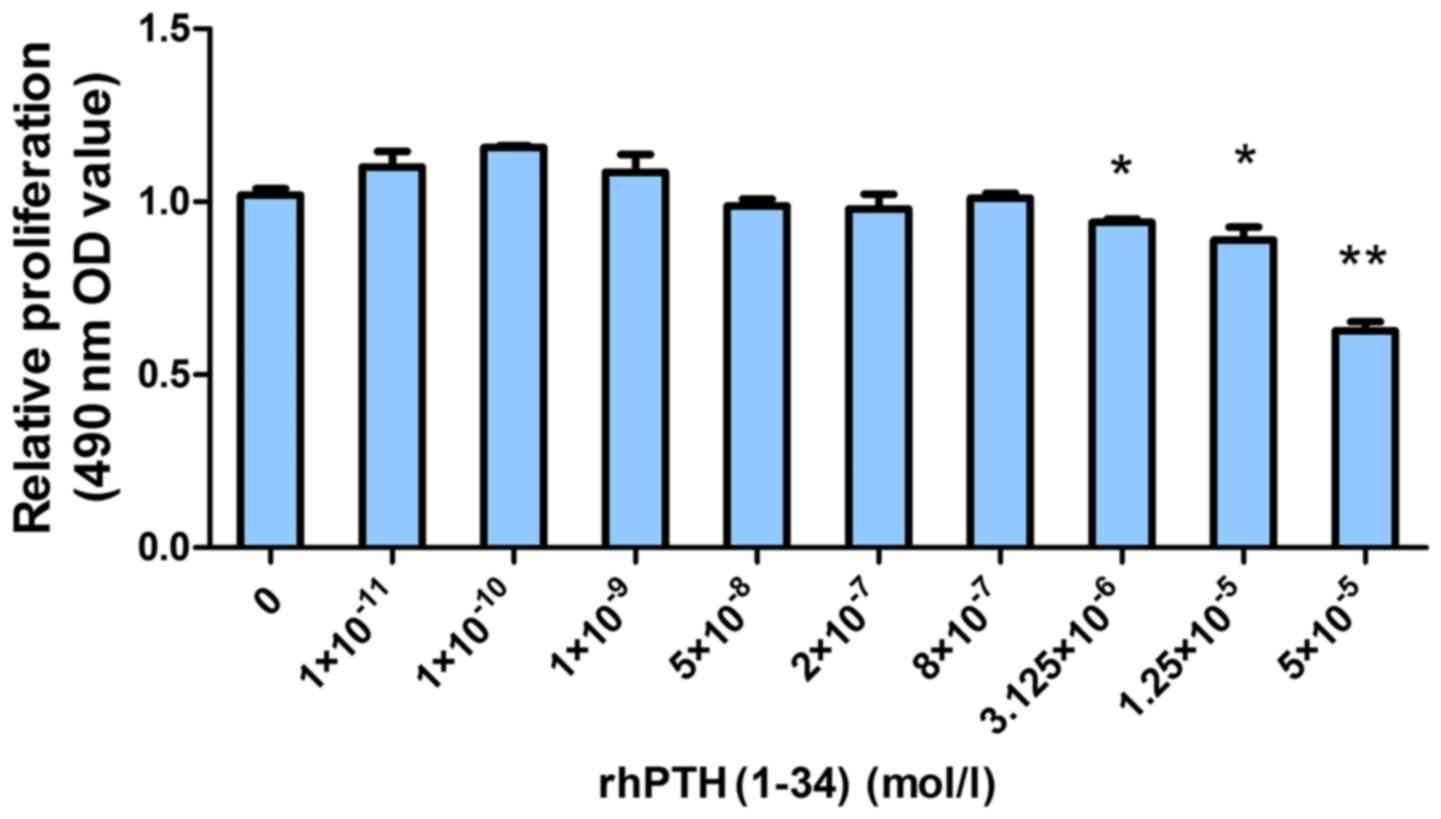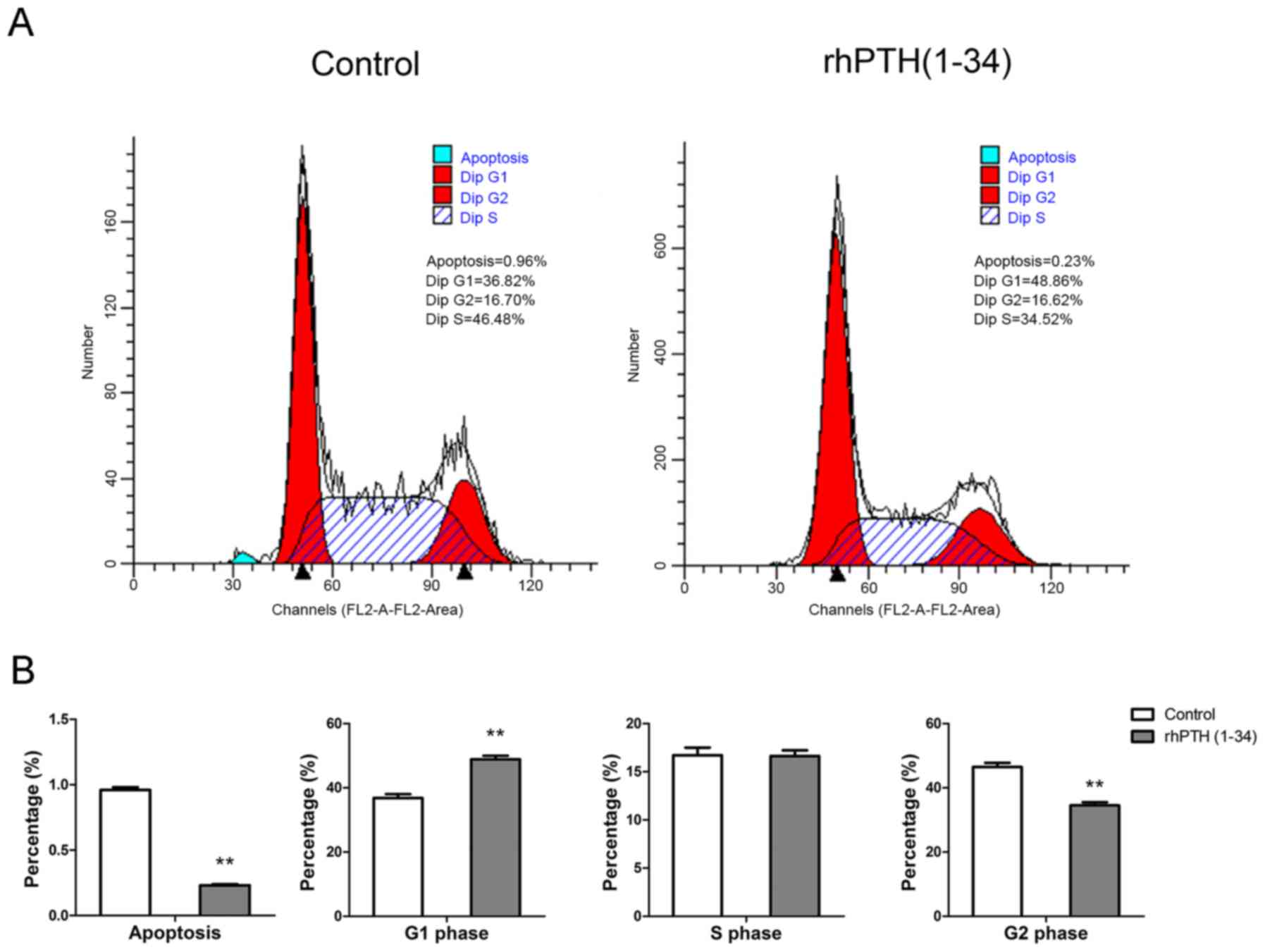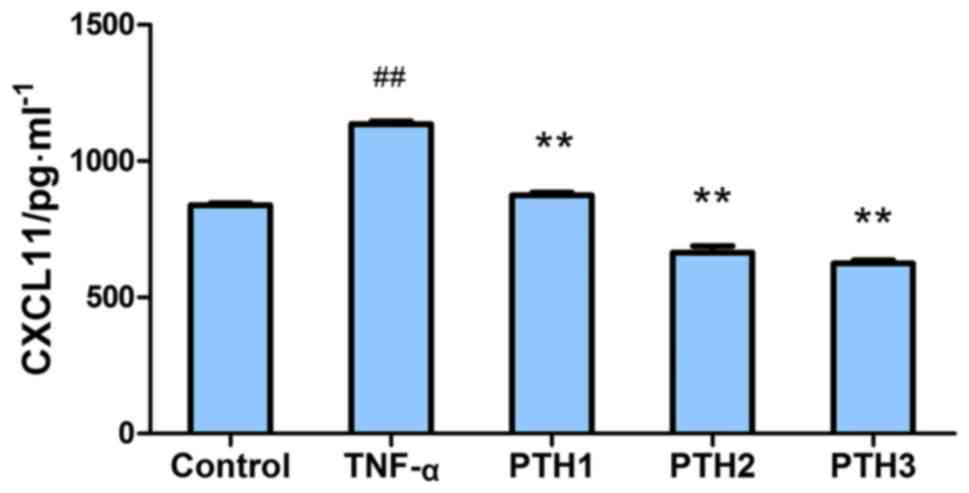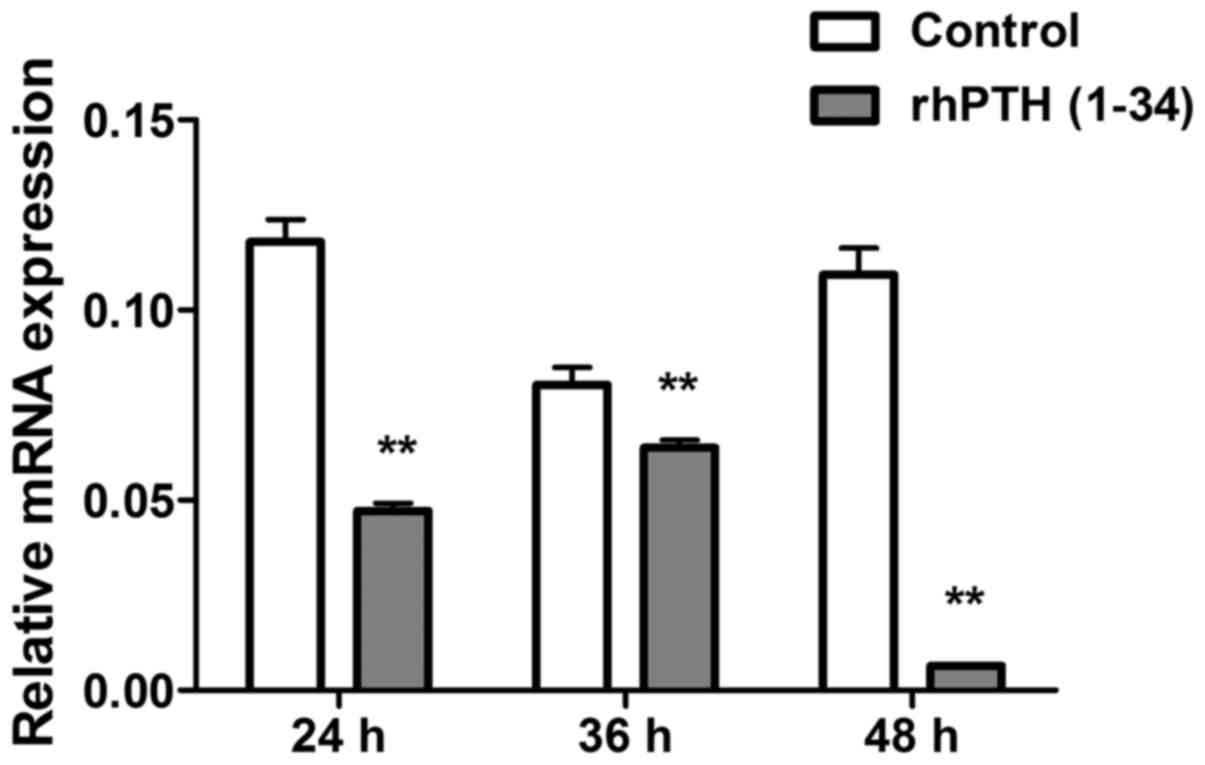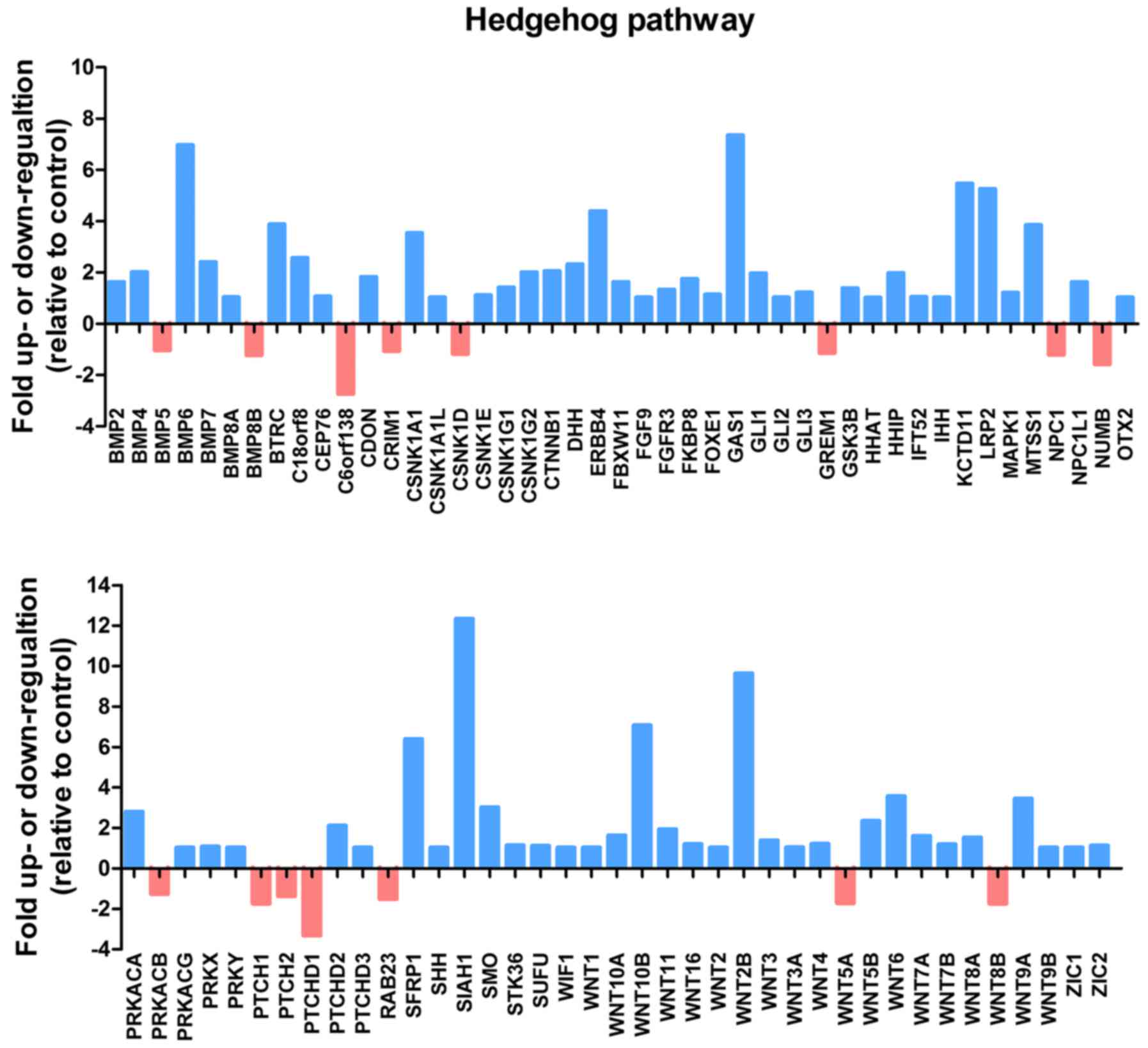|
1
|
Traub M and Marshall K:
Psoriasis-pathophysiology, conventional, and alternative approaches
to treatment. Altern Med Rev. 12:319–330. 2007.PubMed/NCBI
|
|
2
|
Feldman SR, Horn EJ, Balkrishnan R, Basra
MK, Finlay AY, McCoy D, Menter A and van de Kerkhof PC;
International Psoriasis Council, : Psoriasis: Improving adherence
to topical therapy. J Am Acad Dermatol. 59:1009–1016. 2008.
View Article : Google Scholar : PubMed/NCBI
|
|
3
|
Menne T and Larsen K: Psoriasis treatment
with vitamin D derivatives. Semin Dermatol. 11:278–283.
1992.PubMed/NCBI
|
|
4
|
Takahashi T and Morikawa K: Vitamin D
receptor agonists: Opportunities and challenges in drug discovery.
Curr Top Med Chem. 6:1303–1316. 2006. View Article : Google Scholar : PubMed/NCBI
|
|
5
|
Errazahi A, Bouizar Z, Lieberherr M, Souil
E and Rizk-Rabin M: Functional Type I PTH/PTHrP receptor in freshly
isolated newborn rat keratinocytes: Identification by RT-PCR and
immunohistochemistry. J Bone Miner Res. 18:737–750. 2003.
View Article : Google Scholar : PubMed/NCBI
|
|
6
|
Whitfield JF, Chakravarthy BR, Durkin JP,
Isaacs RJ, Jouishomme H, Sikorska M, Williams RE and Rixon RH:
Parathyroid hormone stimulates protein kinase C but not adenylate
cyclase in mouse epidermal keratinocytes. J Cell Physiol.
150:299–303. 1992. View Article : Google Scholar : PubMed/NCBI
|
|
7
|
Calvi LM, Adams GB, Weibrecht KW, Weber
JM, Olson DP, Knight MC, Martin RP, Schipani E, Divieti P,
Bringhurst FR, et al: Osteoblastic cells regulate the
haematopoietic stem cell niche. Nature. 425:841–846. 2003.
View Article : Google Scholar : PubMed/NCBI
|
|
8
|
Pun K and Tam S: Parathyroid
hormone-activated phosphoinositide degradation and calcium channels
in human dermal fibroblasts. Biol Signals. 4:19–23. 1995.
View Article : Google Scholar : PubMed/NCBI
|
|
9
|
Holick M, Nussbaum S and Persons K:
PTH-like humoral hypercalcemia factor (HHF) of malignancy may be an
epidermal differentiation factor: Synthetic hHHF (1–34) NH2
inhibits proliferation and induces terminal differentiation of
cultured human keratinocytes. J Bone Miner Res. 3:S2141988.
|
|
10
|
Holick MF, Ray S, Chen TC, Tian X and
Persons KS: A parathyroid hormone antagonist stimulates epidermal
proliferation and hair growth in mice. Proc Natl Acad Sci. 91:pp.
8014–8016. 1994; View Article : Google Scholar : PubMed/NCBI
|
|
11
|
Livak KJ and Schmittgen TD: Analysis of
relative gene expression data using real-time quantitative PCR and
the 2(-Delta Delta C(T)) method. methods. 25:402–408. 2001.
View Article : Google Scholar : PubMed/NCBI
|
|
12
|
Cole KE, Strick CA, Paradis TJ, Ogborne
KT, Loetscher M, Gladue RP, Lin W, Boyd JG, Moser B, Wood DE, et
al: Interferon-inducible T cell alpha chemoattractant (I-TAC): A
novel non-ELR CXC Chemokine with potent activity on activated T
cells through selective high affinity binding to CXCR3. J Exp Med.
187:2009–2021. 1998. View Article : Google Scholar : PubMed/NCBI
|
|
13
|
Kaiser SM, Laneuville P, Bernier SM, Rhim
JS, Kremer R and Goltzman D: Enhanced growth of a human
keratinocyte cell line induced by antisense RNA for parathyroid
hormone-related peptide. J Biol Chem. 267:13623–13628.
1992.PubMed/NCBI
|
|
14
|
Silve C, Santora A and Spiegel A: A factor
produced by cultured rat leydig tumor (Rice-500) cells associated
with humoral hypercalcemia stimulates adenosine 3′,5′-monophosphate
production via the parathyroid hormone receptor in human skin
fibroblasts. J Clin Endocrinol Metab. 60:1144–1147. 1985.
View Article : Google Scholar : PubMed/NCBI
|
|
15
|
Ng KW and Martin TJ: Humoral hypercalcemia
of malignancy. Clin Biochem. 23:11–16. 1990. View Article : Google Scholar : PubMed/NCBI
|
|
16
|
Juhlin L, Hagforsen E and Juhlin C:
Parathyroid hormone related protein is localized in the granular
layer of normal skin and in the dermal infiltrates of mycosis
fungoides but is absent in psoriatic lesions. Acta Derm Venereol.
72:81–83. 1992.PubMed/NCBI
|
|
17
|
Boniface K, Lecron JC, Bernard FX,
Dagregorio G, Guillet G, Nau F and Morel F: Keratinocytes as
targets for interleukin-10-related cytokines: A putative role in
the pathogenesis of psoriasis. Eur Cytokine Netw. 16:309–319.
2005.PubMed/NCBI
|
|
18
|
Roussaki-Schulze AV, Kouskoukis C,
Petinaki E, Klimi E, Zafiriou E, Galanos A and Rallis E: Evaluation
of cytokine serum levels in patients with plaque-type psoriasis.
Int J Clin Pharmacol Res. 25:169–173. 2005.PubMed/NCBI
|
|
19
|
Kanda N, Shimizu T, Tada Y and Watanabe S:
IL-18 enhances IFN-gamma-induced production of CXCL9, CXCL10 and
CXCL11 in human keratinocytes. Eur J Immunol. 37:338–350. 2007.
View Article : Google Scholar : PubMed/NCBI
|
|
20
|
Flier J, Boorsma DM, van Beek PJ, Nieboer
C, Stoof TJ, Willemze R and Tensen CP: Differential expression of
CXCR3 targeting chemokines CXCL10, CXCL9 and CXCL11 in different
types of skin inflammation. J Pathol. 194:398–405. 2001. View Article : Google Scholar : PubMed/NCBI
|
|
21
|
Nedoszytko B, Sokołowska-Wojdyło M,
Ruckemann-Dziurdzińska K, Roszkiewicz J and Nowicki RJ: Chemokines
and cytokines network in the pathogenesis of the inflammatory skin
diseases: Atopic dermatitis, psoriasis and skin mastocytosis.
Postepy Dermatol Alergol. 31:84–91. 2014. View Article : Google Scholar : PubMed/NCBI
|
|
22
|
Fodor S, Rava RP, Huang XC, Pease AC,
Holmes CP and Adams CL: Multiplexed biochemical assays with
biological chips. Nature. 364:555–556. 1993. View Article : Google Scholar : PubMed/NCBI
|
|
23
|
Oro AE, Higgins KM, Hu Z, Bonifas JM,
Epstein EH Jr and Scott MP: Basal cell carcinomas in mice
overexpressing sonic hedgehog. Science. 276:817–821. 1997.
View Article : Google Scholar : PubMed/NCBI
|
|
24
|
Hahn H, Wicking C, Zaphiropoulos PG,
Gailani MR, Shanley S, Chidambaram A, Vorechovsky I, Holmberg E,
Unden AB, Gillies S, et al: Mutations of the human homolog of
Drosophila patched in the nevoid basal cell carcinoma syndrome.
Cell. 85:841–851. 1996. View Article : Google Scholar : PubMed/NCBI
|
|
25
|
Karhadkar SS, Bova GS, Abdallah N, Dhara
S, Gardner D, Maitra A, Isaacs JT, Berman DM and Beachy PA:
Hedgehog signalling in prostate regeneration, neoplasia and
metastasis. Nature. 431:707–712. 2004. View Article : Google Scholar : PubMed/NCBI
|
|
26
|
Kameda T, Hatakeyama S, Terada K and
Sugiyama T: Acceleration of the formation of cultured epithelium
using the sonic hedgehog expressing feeder cells. Tissue
engineering. 7:545–555. 2001. View Article : Google Scholar : PubMed/NCBI
|















